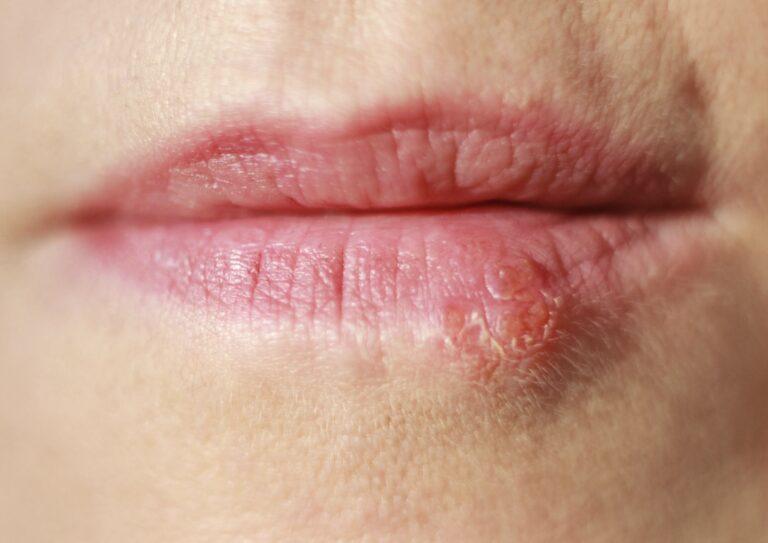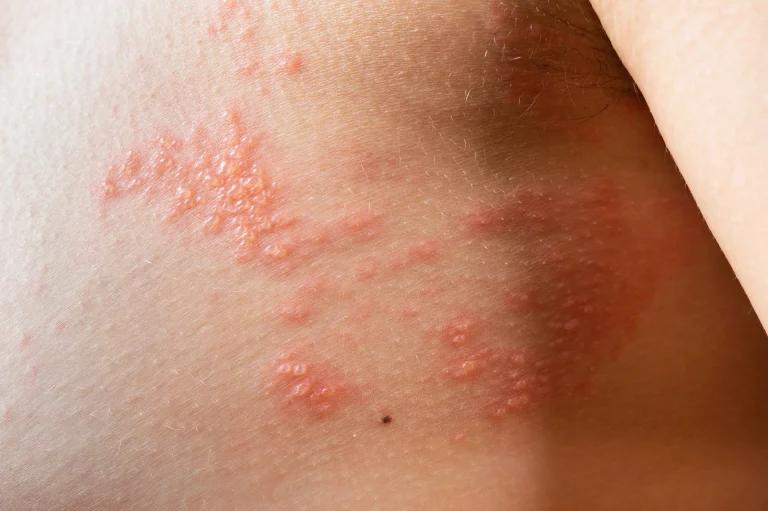
Are you feeling flu-like symptoms such as moderate to severe pain and itchy rashes on one side of your body? It could be shingles. Although similar in appearance to chickenpox, shingles is a distinct (and much more serious) virus that can cause worryingly intense discomfort if left untreated. In this blog post, we’ll explore the causes, symptoms, treatments and prevention methods related to shingles so you can know what to look out for should your symptoms resemble those of this condition.
What are Shingles?
Shingles also known as herpes zoster is a viral infection that causes a painful skin condition. It is caused by the reactivation of the chickenpox virus, which usually occurs in older adults and people with weakened immune systems. Anyone who has had chickenpox is at risk of developing shingles, which may cause a painful rash, blisters, and even post-herpetic neuralgia, a chronic pain condition. You cannot get shingles from someone with shingles or chickenpox, but you can get chickenpox from someone with shingles, if you have not had chickenpox before.
Causes of Shingles
The main cause of shingles is the varicella-zoster virus, which is responsible for chickenpox. After a person recovers from chickenpox, the virus lies dormant in the nervous system, but can be reactivated years later, causing shingles. Some of the factors that increase the risk of shingles include:
- A weakened immune system, due to illness. Medical conditions that cause a decrease in immunity include cancer, leukaemia, lymphoma, and human immunodeficiency virus (HIV) infections
- Those receiving drugs that weaken the immune system, such as steroids, and drugs given after organ transplantation
- Ageing (most commonly occurs in people 50 years of age or older)
- Physical or emotional stress
Although shingles is not a life-threatening condition, it can be very painful and disrupt daily activities, making it important to recognise early symptoms and seek medical attention promptly.
What are the symptoms of Shingles?
Often the first shingles symptom is pain or tingling on one side of the face, or one side of the body. After a few days, a painful rash will appear in that same area of skin. The initial shingles rash appears as a red blotchy area, followed by fluid-filled blisters that will eventually burst and then scab over. This is the most uncomfortable stage of shingles, but it’s important to keep the affected area clean to avoid infection. Once the blisters have scabbed over and are starting to heal, the pain will begin to subside. However, it’s important to continue treating the affected area until the scabs have completely fallen off to avoid scarring. Other symptoms may include fever, headache, fatigue, and sensitivity to light. Keep a close eye on your symptoms and don’t hesitate to seek medical attention if you’re experiencing severe pain, or any other unusual symptoms.
Diagnosis of Shingles
A doctor can usually diagnose shingles by examining the rash and asking about the symptoms. In some cases, a sample of the blister fluid may be taken for laboratory tests. While shingles can be diagnosed based on the symptoms alone, it’s important to seek medical attention as soon as possible to prevent complications and get prompt treatment.
How to treat Shingles?
There is currently no cure for shingles, but treatment can help relieve the symptoms and reduce the risk of complications. Antiviral medications such as acyclovir, valacyclovir, and famciclovir can help reduce the severity and duration of the rash, while over-the-counter pain relievers, such as ibuprofen and paracetamol can help relieve the pain. Applying a cool compress or taking a cool bath may also provide some relief. Wearing loose-fitting clothing may also keep you cool. Keep the rash clean and dry to reduce the risk of infection.
Shingles vaccination
A shingles vaccine is available on the NHS for people in their 70s. It helps reduce your risk of getting shingles. There are 2 shingles vaccines available in the UK:
- Zostavax vaccine is a live vaccine given in 1 dose
- Shingrix vaccine is a non-live vaccine given in 2 doses
If you get shingles after being vaccinated, the symptoms can be much milder. The most common side effects of the shingles vaccine are redness, pain and swelling at the injection site.
Chickenpox vaccination
The chickenpox vaccine is only currently offered on the NHS to people who are in close contact with someone who’s particularly vulnerable to chickenpox or its complications.
There are 2 chickenpox vaccines currently available. The brand names of the chickenpox vaccine are Varivax and Varilrix.
How long does Shingles pain last?
If you’re wondering how long shingles pain lasts, you’re not alone. Many people who get this infection wonder the same thing. The good news is that the intense pain usually lasts only a few weeks in most cases of shingles. However, for some people, nerve pain lasts for several months or more after the rash has gone. This condition is called postherpetic neuralgia, and it affects about one in five people who get shingles. The key to managing shingles pain is to seek treatment as soon as possible. Your doctor may prescribe antiviral medication and pain relievers to help alleviate your symptoms. In addition, practising good self-care techniques, such as getting plenty of rest and avoiding stress can also help you feel better faster. The Centers for Disease Control and Prevention (CDC) warns that having risk factors may increase your chances of getting shingles more than once, though this isn’t likely.
Are shingles contagious?
The short answer is yes, shingles can be contagious, but only to those who have not had the chickenpox virus in the past. Shingles are caused by the reactivation of the same virus that causes chickenpox, known as the varicella-zoster virus. While the virus is contagious, it can only be spread through direct contact with the rash or blisters that appear during the active phase of shingles. If you have shingles, it is important to take precautions to prevent the spread of the virus, such as avoiding close contact with infants, pregnant women, and people with weakened immune systems. If you have concerns about whether you are at risk of contracting shingles or spreading the virus, talk to your healthcare provider for more information.
Complications of shingles
The most common complication of shingles is postherpetic neuralgia (PHN), which is characterised by persistent pain in the area where the skin rash was located. Other potential complications include vision loss, hearing problems, and pneumonia. These issues can be particularly problematic for elderly people, pregnant women, and people with weak immune systems. It’s important to seek medical attention promptly if you suspect you may have shingles, as early treatment can help reduce the risk of complications.
In rare cases, shingles lesions can become infected with bacteria. This can cause additional symptoms such as fever and pus-filled blisters. If you notice any changes in your shingles lesions, such as increased redness or swelling, it is important to see a doctor right away. They can prescribe antibiotics to help manage the bacterial infection and prevent any further complications.
In extremely rare cases complications of shingles may lead to inflammation of the brain (encephalitis) and even death.
Can I go to work with Shingles?
The answer, unfortunately, is not a simple one. It all depends on how severe your symptoms are and what type of job you have. If you have a job that is physically demanding or requires a lot of contact with customers or clients, it might be best to stay home until you feel better. However, if your symptoms are mild and you can manage your pain with over-the-counter medication, you may be able to go to work as long as you take care to avoid spreading the virus to others. As always, consult with your healthcare provider for advice on whether you should stay home or go to work.
Can you have Shingles without a rash?
Yes. This condition, known as zoster sine herpete, occurs in a small percentage of shingles cases and is often mistaken for other medical issues. The absence of a rash can make it difficult to diagnose, but symptoms such as fever, headache, and nerve pain may still be present. If you suspect you may have shingles, even if a rash is not present, make sure to consult with your healthcare provider for proper diagnosis and treatment.
Shingles are a common and painful condition that affects many people, especially as they get older. Understanding the causes, symptoms and treatment options can help you better manage this condition and reduce the risk of complications. If you suspect that you may have shingles, it’s important to seek medical attention as soon as possible to receive prompt treatment and prevent further complications.
Sources
NowPatient has taken all reasonable steps to ensure that all material is factually accurate, complete, and current. However, the knowledge and experience of a qualified healthcare professional should always be sought after instead of using the information on this page. Before taking any drug, you should always speak to your doctor or another qualified healthcare provider.
The information provided here about medications is subject to change and is not meant to include all uses, precautions, warnings, directions, drug interactions, allergic reactions, or negative effects. The absence of warnings or other information for a particular medication does not imply that the medication or medication combination is appropriate for all patients or for all possible purposes.








